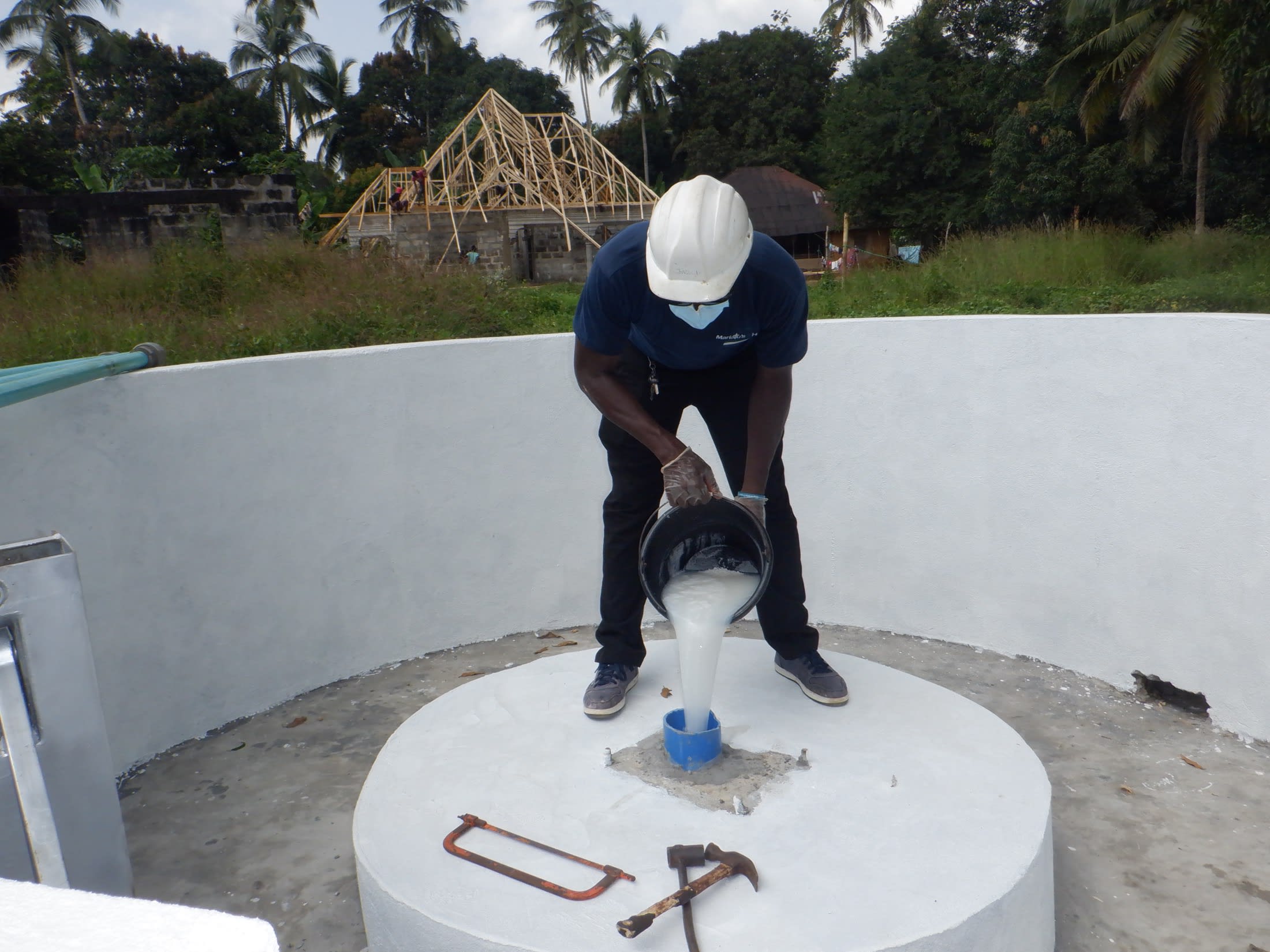The water crisis in Komrabai makes life much harder for women and girls, whose responsibility it is to carry out household tasks like fetching water. There are 128 people who live in this section of the community, which lacks even a single source of reliable water.
15-year-old Mariatu (pictured carrying water below) fetches water for her household. But she may end up trudging through multiple communities, even late into the night, and never get the water she and her family need to accomplish everyday things like cooking, cleaning, laundry, or quenching their thirst.
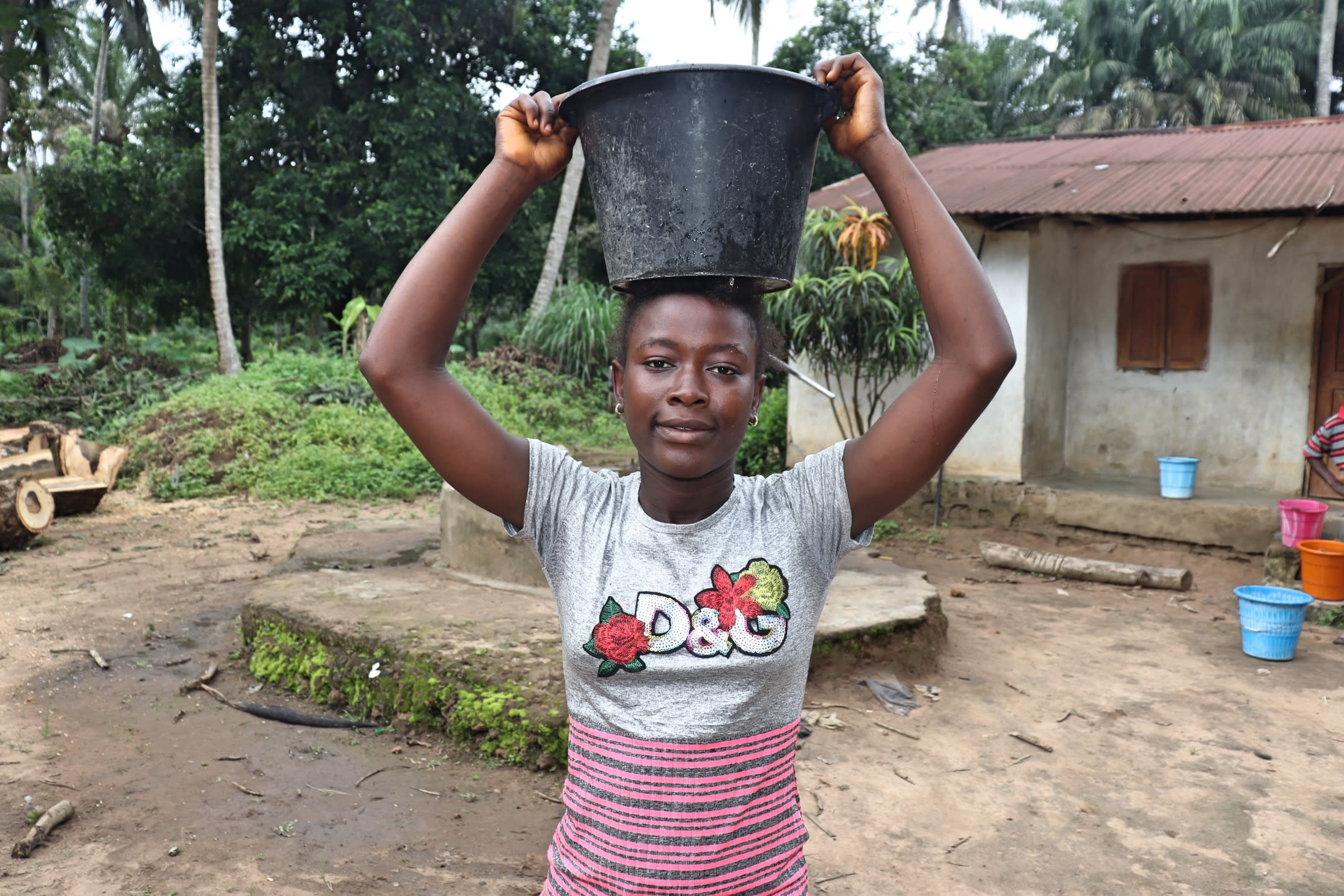
"I am not getting water easily in this community," Mariatu said. "I fetch water to prepare food for us, [and] also make sure that I fetch enough water to drink and bathe at home. [On] weekends, especially Saturdays and Sundays, I have to fetch enough water to launder [our] clothes."
Every day before school, Mariatu goes out in search of water for her family. But she may have to visit several wells before she can get any.
"The [main] water well is overcrowded during the dry season because many people come from other communities to fetch water from the well," Mariatu explained. "During that moment, it would be hard for me to fetch water, especially during the morning hours. I would not even fetch the quantity of water that I needed at that time."
As Mariatu said, the main well in Komrabai is crowded because none of the nearby water sources dependably provide water. Unfortunately, this well, too, is not trustworthy. The pump mechanics often break from overuse. And, more and more often, the well dries up entirely during seasons when rain is scarce, leaving those who've waited in line for water out of luck.
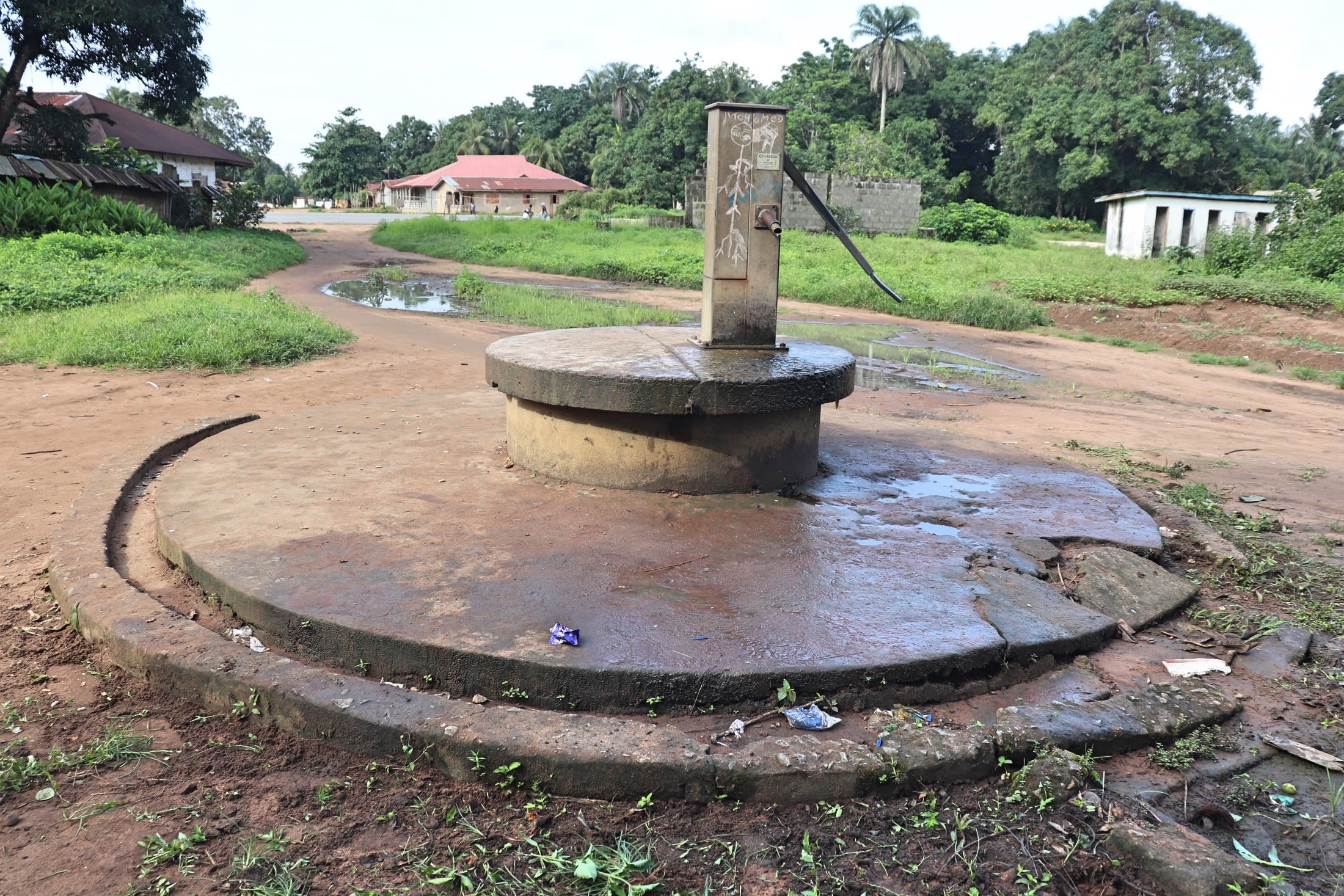
Even when there is water at the well, kids like Mariatu may be shoved back in line by adults who insist that children should respect their elders and that adults' water-related tasks are more important.
"[Children] are delayed [in] getting access to water, especially when the well is overcrowded," said our field officer, Alie. "They are deprived by adults from fetching water when it is their time. As a result, they would return home without fetching water."
But it's hard for adults to be charitable when their own needs aren't being met.
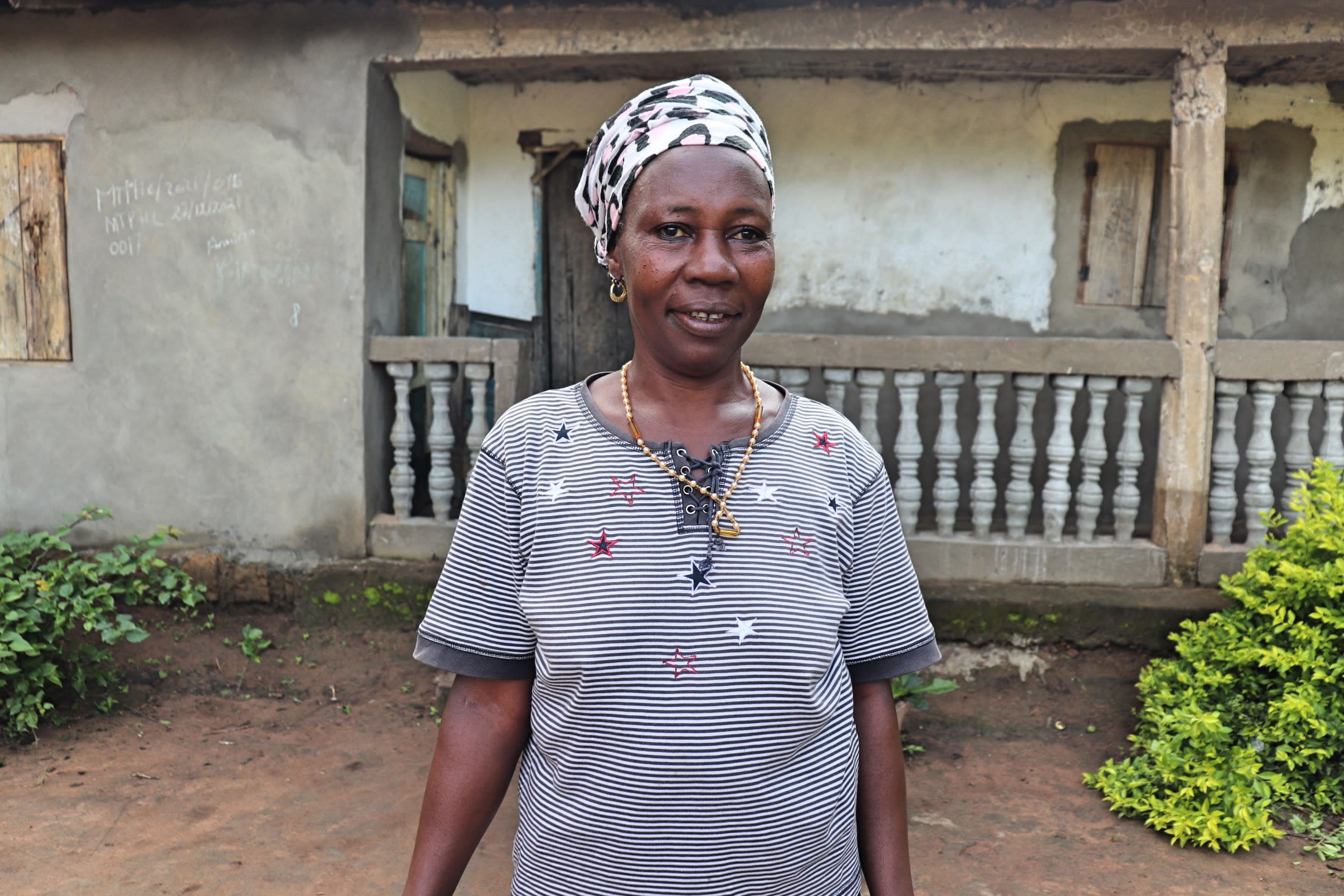
"I am a farmer and I produce palm oil for home use," said 48-year-old farmer and trader Amie Kamara (pictured above). "Because of water challenges in the community, I find it hard to carry out this process. It affects me greatly not to produce palm oil. I also find it difficult to get drinking water at home. Also, I find it hard to launder my clothes. This task hardly [gets] completed."
Because Komrabai doesn't have enough water, community members must walk to neighboring villages to see if they can fetch water there.
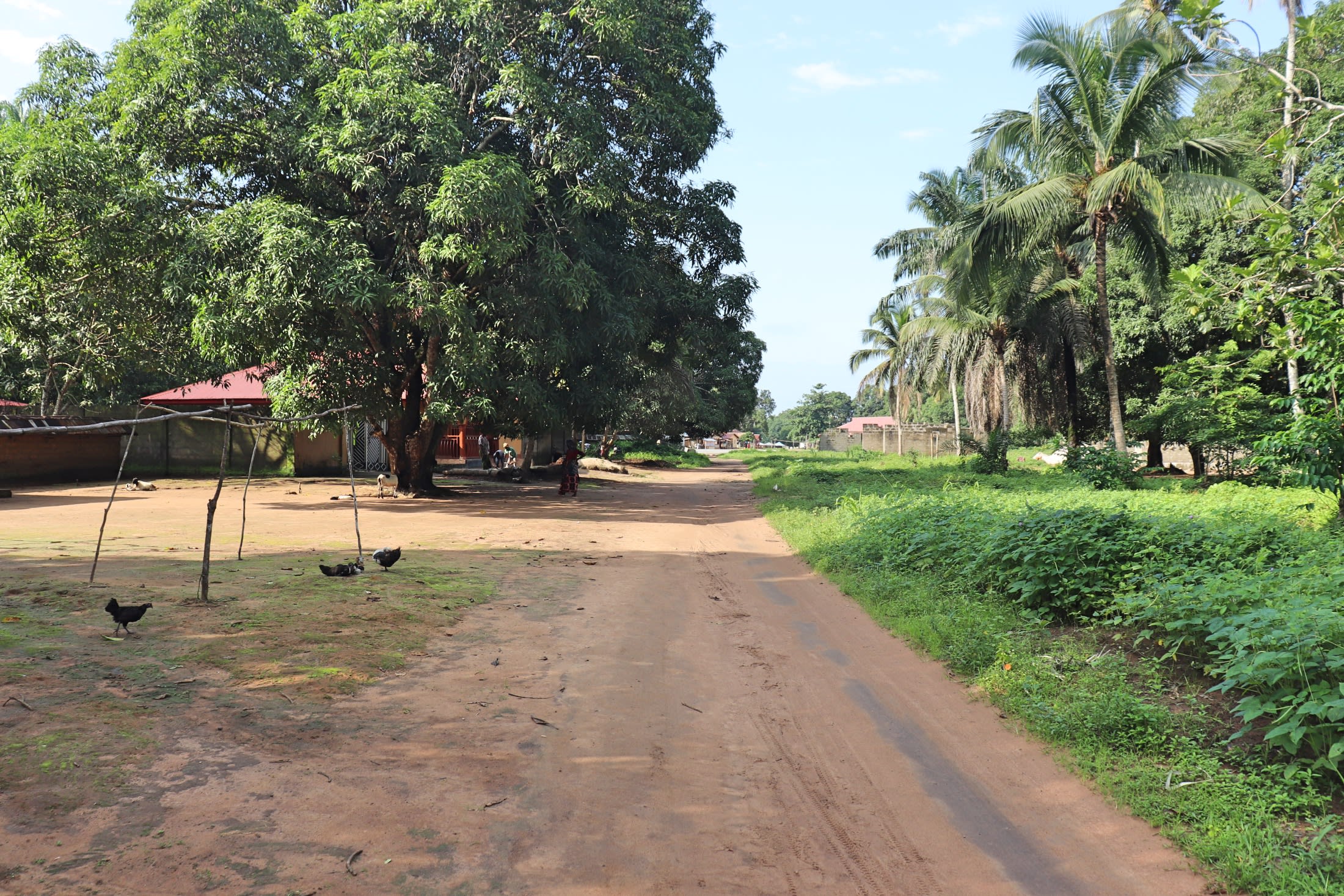
"It is more difficult to fetch water from other communities when the water well [is] not working properly," Mariatu said. "I have to walk far away to reach there, which causes me to delay to return home. I could not complete other tasks at home because of insufficient water."
Finding water takes up so much time every day that things at home have to be left undone. But it also makes basic bodily needs like drinking, bathing, and eating impossible until late at night.
"Water is key to human beings," Amie said. "As it concerns women, [we] often use water frequently to maintain [our] personal hygiene. It is hard for me to carry out personal hygiene, like to use the restroom is a big challenge for me."
"Most households prepare food in the late evening," said field officer Alie. "People will go [to] their various workplaces then later return home hoping that when they reach home, they will prepare food quickly. Because of [the] water crisis in the community, they spend much time in search of water. This causes the community people to prepare food late and eat food late in the evening. The children being out by themselves in the late hours is not safe, especially fetching water from other communities. Teenagers would take a chance to involve themselves in early teenage pregnancy, which later delays their schooling."
We're working to rehabilitate the water sources all around Komrabai to ensure that each community can access water. With more water sources, hopefully none of them will be overcrowded, and each of them will reliably give water even throughout the dry seasons.
"I will continue to pray for this project to help renew this water well," concluded Amie.
Here’s what we’re going to do about it:
Well Rehabilitation
The well marked for this overhaul is dry for a few months every year and needs major work to supply adequate, clean water to the community year round. The pump will be removed, and a hand auger will be lowered inside and powered by a drill team. This hand auger will allow the team to drill several meters deeper to hit a sufficient water column that will ensure the well supplies water throughout all seasons.
As the team drills, casing will be installed, transforming the bottom of this hand-dug well into a borehole. PVC piping will connect this lower system directly to the pump, a construction that we know will also improve the quality of water.
Once this plan is implemented, everyone within the community will have access to safe drinking water in both quality and quantity, even through the dry months.
Hygiene and Sanitation Training
There will be hygiene and sanitation training sessions offered for three days in a row.
After our visit, the hygiene and sanitation trainer decided it would be best to teach community members how to build a tippy tap (a hand-washing station built with a jerrycan, string, and sticks). They will use these tippy taps for handwashing demonstrations, and will also teach about other tools like dish racks and the importance of properly penning in animals.
These trainings will also strengthen the water user committee that manages and maintains this well. They enforce proper behavior and report to us whenever they need our help solving a serious problem, like a pump breakdown.




 Borehole Well and Hand Pump
Borehole Well and Hand Pump














